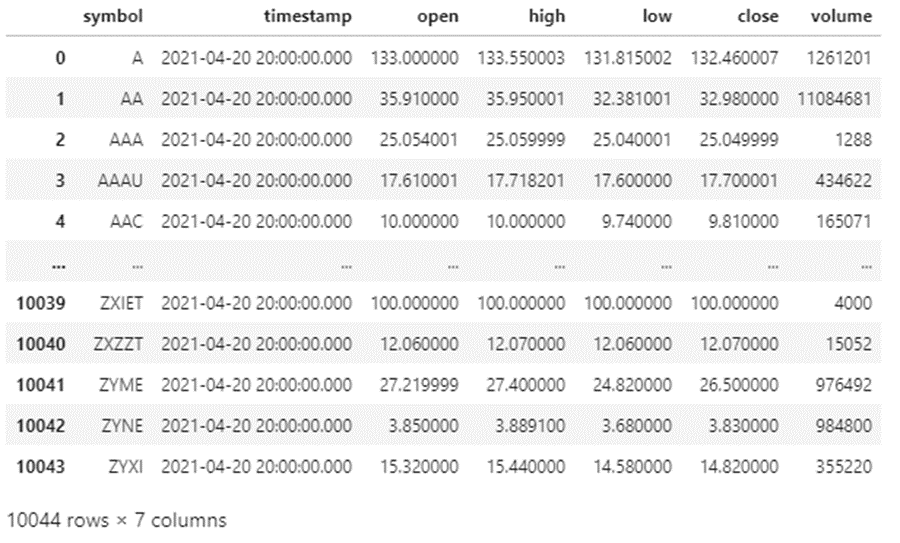Last Known Value
A query that does not provide any date parameters will return the last known value.
Liberator liberator = new Liberator();
Object query_id = liberator.query(new HashMap<>() );
for (Liberator.QueryResult res : liberator.Generate()) {
Object res_id = res.GetId();
Object data = res.GetData();
if(data instanceof org.apache.arrow.vector.VectorSchemaRoot){
org.apache.arrow.vector.VectorSchemaRoot recordBatch = (org.apache.arrow.vector.VectorSchemaRoot) data;
printRecordBatch(recordBatch);
} else if (data instanceof javax.json.JsonValue) {
javax.json.JsonValue jsonValue = (javax.json.JsonValue) data;
System.out.println(jsonValue);
}
}
Output

Time Series Queries – Providing Date Parameters
There are two date parameters that you can pass.
|
Argument |
Description |
Type |
Example |
|
as _of |
This value can be any past date so that you can see the data as it was known on the “as of” date. |
String Format YYYY-MM-DD HH:MM:SS (HH:MM:SS is optional) |
“as_of”:“2020-11-22 19:51:31” |
|
back_to |
The date where the return dataset should begin. |
String Format YYYY-MM-DD HH:MM:SS (HH:MM:SS is optional) |
“back_to”:“2020-01-01” |
💡: Note if as_of and back_to are the same date time, then you will not receive a time series result.
Liberator liberator = new Liberator();
Object query_id = liberator.query(new HashMap<>() );
for (Liberator.QueryResult res : liberator.Generate()) {
Object res_id = res.GetId();
Object data = res.GetData();
if(data instanceof org.apache.arrow.vector.VectorSchemaRoot){
org.apache.arrow.vector.VectorSchemaRoot recordBatch = (org.apache.arrow.vector.VectorSchemaRoot) data;
printRecordBatch(recordBatch);
} else if (data instanceof javax.json.JsonValue) {
javax.json.JsonValue jsonValue = (javax.json.JsonValue) data;
System.out.println(jsonValue);
}
}
